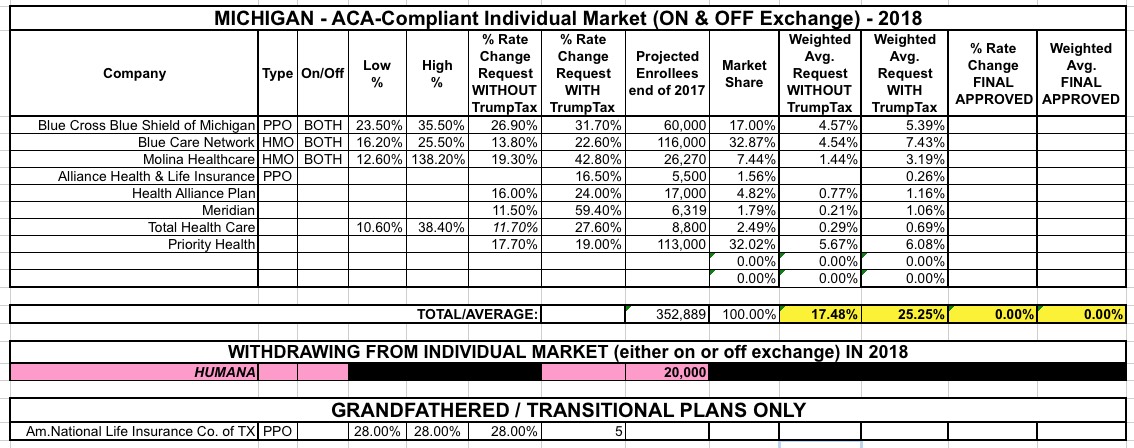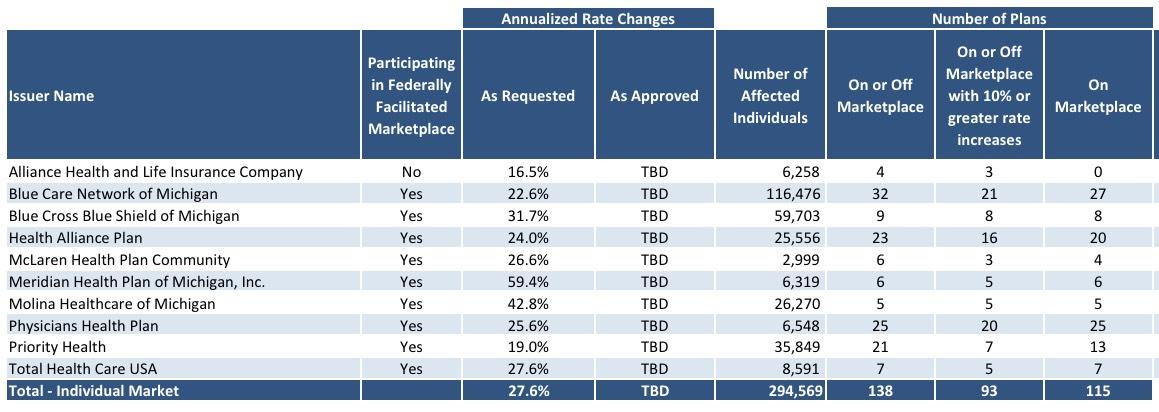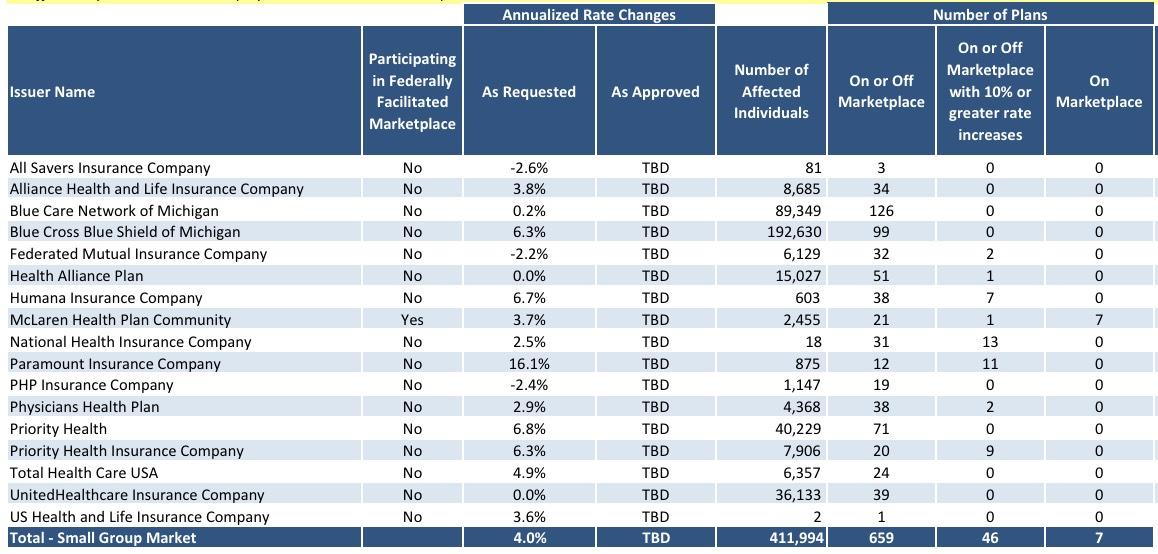Michigan: Semi-Approved 2018 Rate Hikes: ~16.8% if CSRs are paid, ~26.8% if they AREN'T
When I first checked in on the requested 2018 individual market rate hikes for my home state of Michigan back in June, I analyzed the SERFF rate filing forms and concluded that the statewide average increase being asked for was around 17.5% assuming CSR reimbursement payments are paid, or 25.3% assuming they aren't:

Last week, the Michigan Dept. of Insurance & Financial Services issued the semi-final word:
Michiganders purchasing health insurance through the federal marketplace will see an average rate increase of 27.6 percent in 2018, the Michigan Department of Insurance and Financial Services announced Friday.
One reason for the big increase: Uncertainty over whether President Trump will continue to fund Cost-Sharing Reduction payments, which subsidize plans for low- and moderate-income households.
"The President has indicated he does not support these payments, and the federal government is currently making them on a month-to-month basis," the DIFS said in its press release.
The Michigan Association of Health Plans, which represents 13 companies, released a statement saying the increases could be reduced by at least 10 percentage points "if President Trump and Congress reverse course and maintain scheduled CSR payments."
"The lack of strong, continued commitment to these CSRs has created uncertainty for consumers and industries across the nation," the statement said.
Unlike most states, Michigan's DIFS is courteous enough to provide not only the summary average rate hikes for each carrier, but the number of enrollees impacted by those increases, which are necessary for running a weighted average and are usually a pain to track down:
However, when I actually plug these numbers into a spreadsheet, I get a slightly lower weighted average of 26.8% (about 0.9 points lower). The main change from my earlier estimate is the number of enrollees, which impacts the market share of each and therefore skews the statewide average a bit.
As for the actual CSR factor, using a combination of the hard numbers already stated by some of the carriers and Kaiser Family Foundation estimates for the rest would give a "partial sabotage" average of 19.9%, but the Michigan Association of Health Plans, which represents these carriers, specifically stated "at least 10 points lower" if CSR funding is guaranteed, so I'm using that instead. This means 16.8% if CSRs are funded, 26.8% if they aren't.
As for the "semi-approved" status, these rates do still need to be formally approved by the DIFS, but their own press release makes it pretty clear that they have no intention of making more than nominal changes to any of these numbers, so I think it's safe to enter those numbers in the "approved" column as well.
MI DIFS also relased the semi-approved numbers for the small group market, which has far more carriers participating (although only one of them is on the ACA SHOP exchange). Statewide average is a mere 4.0% overall:
How to support my healthcare wonkery:
1. Donate via ActBlue or PayPal
2. Subscribe via Substack.
3. Subscribe via Patreon.






